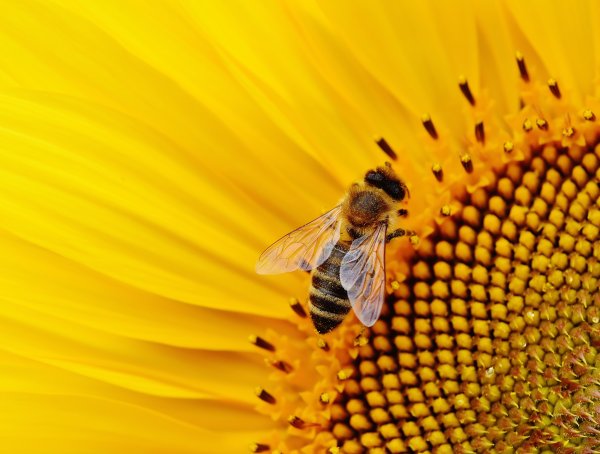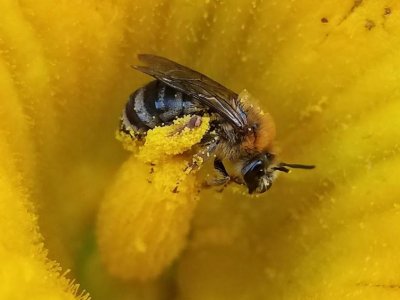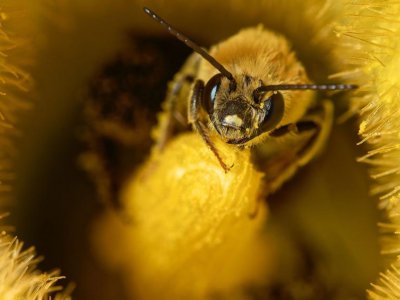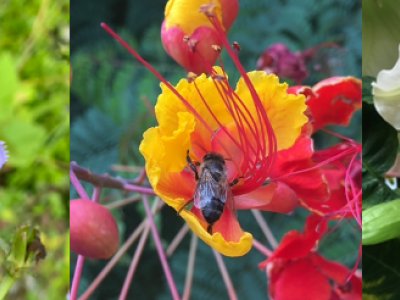Bee decline threatens ecosystem sustainability through reductions in pollination services to plants and crops. The reliance on bee pollination for food security and ecosystem functioning has emphasized the critical need to understand resilience of wild bee populations in response to environmental stressors. Increased variation in environmental temperature due to climate change is a key stressor to bees and potential driver of pollinator decline generally. However, it remains unclear what the physiological consequences of environmental warming for wild bees are and how increasing temperature interacts with other stressors (e.g., pathogen dynamics) to impact population stability. Here, we propose to address these questions through a new collaborating team involving Entomologists and Engineers to develop technologies that facilitate the study of the impact of environmental warming on wild bee pollinators. We propose to (1) investigate how microclimatic temperature variations impact thermal tolerance in wild bees, (2) develop and manufacture devices for field-based thermal tolerance assays of wild-caught bees, and (3) train students in interdisciplinary research involving biology, physics, and engineering. Anticipated results from this project include data for future proposals that seek external funding to study questions about the resilience of wild pollinators to climate change and associated interactions with other stressors.
Resulting Funding
- National Science Foundation: $300,000. International Research Experience on Pollinators in a Changing World
- US Department of Agriculture: $682,290. Biotic and Abiotic Drivers of Thermal Tolerance in Wild Crop Pollinators
Resulting Publications
- Jones, L. J., Miller, D. A., Schilder, R. J., & López-Uribe, M. M. (2024). Body mass, temperature, and pathogen intensity differentially affect critical thermal maxima and their population-level variation in a solitary bee. Ecology and Evolution, 14, e10945. https://doi.org/10.1002/ece3.10945
- López-Uribe, M. M., Appert, M. K., Delgado, A. X., Herrera-Motta, A. F., Jimenez, A., Martín-Rojas, R. D., Ramos-Abensur, V. M., Riaño-Jimenez, D. A., Cure, J. R., Fuentes, J. D., Duque, L. O., & Gonzalez, V. H. (2024). Critical thermal maxima differ between groups of insect pollinators and their foraging times: Implications for their responses to climate change. In Journal of Melittology (Issue 122). The University of Kansas. https://doi.org/10.17161/jom.vi122.22505
Resulting Presentations
- Jones LJ, Youngsteadt E, Jha S, Schilder RJ, López-Uribe MM. Thermal tolerance depends on climate variability and sex in a widely distributed solitary bee. (Oral Presentation) British Ecological Society Conference. (December 2021)
- Jones LJ, Youngsteadt E, Jha S, Schilder RJ, López-Uribe MM. Climate modulates thermal tolerance in squash bees across their range. (Oral Presentation) Center for Pollinator Research Symposium. (November 2021)









